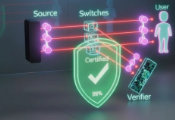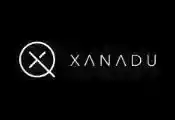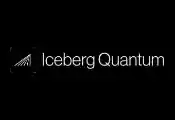Rigetti Computing Reports Second Quarter 2024 Financial Results
BERKELEY, Calif., Aug. 08, 2024 -- Rigetti Computing, Inc. (“Rigetti” or the “Company”), a pioneer in full-stack quantum-classical computing, today announced its financial results for the second quarter ended June 30, 2024.
Second Quarter 2024 Financial Highlights
- Total revenues for the three months ended June 30, 2024 were $3.1 million
- Total operating expenses for the three months ended June 30, 2024 were $18.1 million
- Operating loss for the three months ended June 30, 2024 was $16.1 million
- Net loss for the three months ended June 30, 2024 was $12.4 million
- For the period from April 1 - July 12, 2024 raised $27.8 million from the sale of 24.1 million common shares under our current ATM program, including $15.8 million raised in the three months ended June 30, 2024
- As of June 30, 2024 cash, cash equivalents and available-for-sale securities totaled $100.5 million
Roadmap and QPU Performance
Rigetti remains on track to develop and deploy its anticipated 84-qubit Ankaa-3 system with the goal of achieving a 99+% median 2-qubit gate fidelity by the end of 2024.
“We are seeing very promising results both with fidelity and speed on our current systems which leverage the underpinning technology of our upcoming Ankaa-3 system. Our 24-qubit system is performing in the 99% range for 2-qubit fidelity. Our gate speeds are 60-80ns, making our systems twice as fast as other superconducting quantum computing players, and 3-4 orders of magnitude faster than trapped ion and pure atom quantum computing systems. We are confident that we can translate this level of performance to our 84-qubit chip,” says Dr. Subodh Kulkarni, Rigetti CEO.
Continued Leadership in QPU Scaling Technology
Published Research on Modular Chip Architecture: Rigetti continues to demonstrate leadership in developing high performing, scalable quantum processors. In May 2024, Rigetti’s research introducing multichip tunable couplers, floating tunable couplers that can be used to entangle qubits on separate chips, was published in the peer-reviewed scientific journal, Physical Review Applied. Rigetti introduced the world’s first modular chip architecture in 2021, unlocking the ability to connect multiple identical chips into a large-scale quantum processor. This modular approach exponentially reduces manufacturing complexity and allows for accelerated, predictable scaling.
This architecture will allow for future Ankaa systems to be tiled together to create larger qubit count processors without sacrificing gate performance.
DARPA Benchmarking Phase 2 Research: Furthering the Company’s work to improve the industry’s understanding of the requirements needed for fault-tolerant quantum computers, in June 2024 Rigetti released preliminary research on the resource estimation framework the company developed in Phase 1 of the DARPA Benchmarking Program. Rigetti’s manuscript presents the resource estimation framework and a software tool that estimates the physical resources required to execute specific quantum algorithms, compiled into their graph-state form, and laid out onto a modular superconducting hardware architecture. Rigetti will continue to work to optimize quantum algorithms for a variety of applications and improve the utility estimates to understand the value proposition of future quantum computers.
Quantum Optimization Algorithm Development
The limited number of qubits available on current quantum computers is a challenge that must be overcome to deliver utility in quantum combinatorial optimization. In July 2024, Rigetti introduced a method to solve large combinatorial problems using a small number of qubits. This method introduces a qubit-efficient combinatorial solver, which stores classical variables in an entangled wave function of fewer qubits. Rigetti’s manuscript demonstrates this method on Rigetti’s Ankaa-9Q-3 system.




































